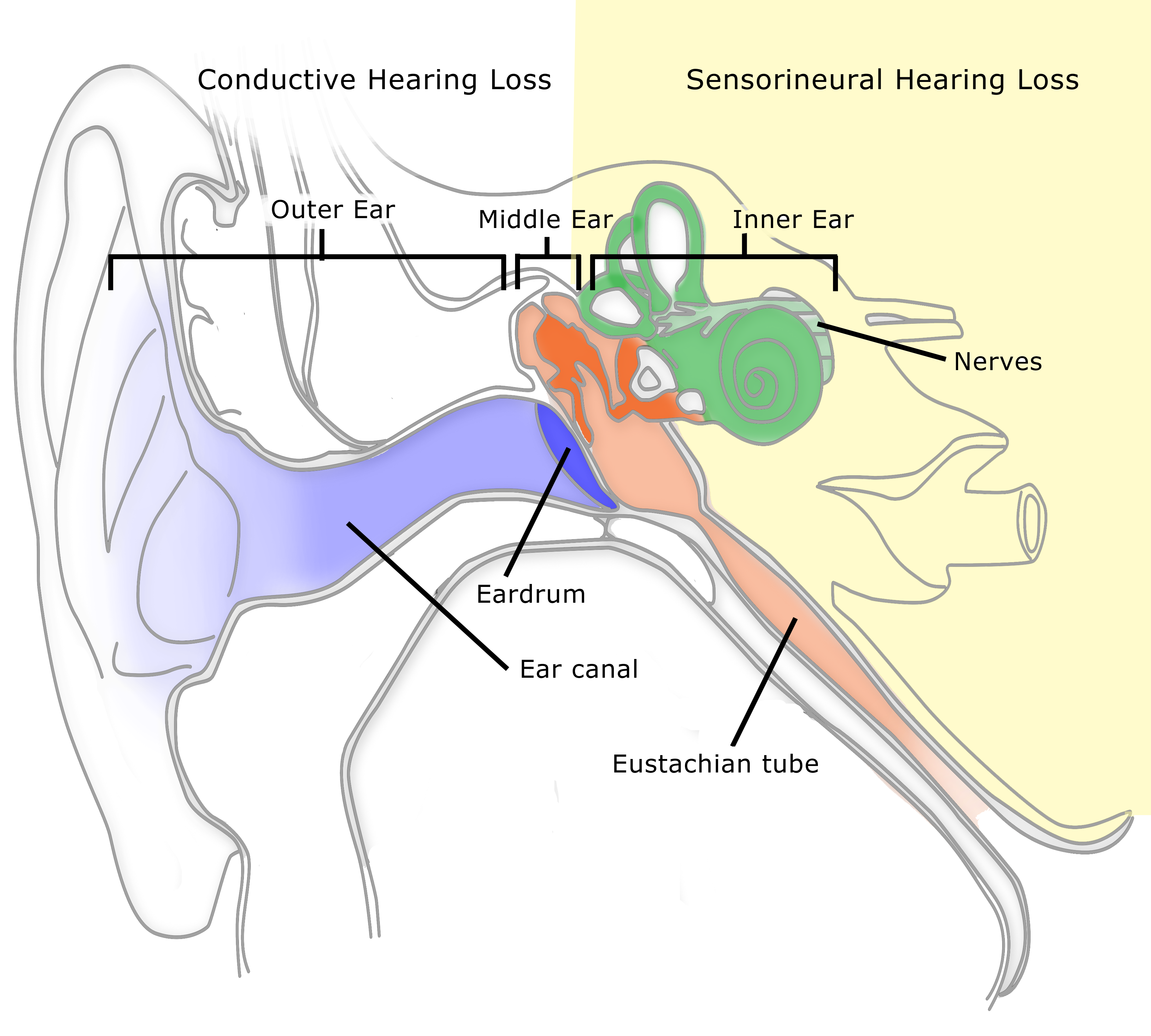Hearing and My Health
The potential connection between hearing loss, health conditions, and medications used to treat health conditions has been explored over the years. Although these are complex issues that researchers are still exploring, I would like to give you an overview of some health conditions and medications that may contribute to hearing loss. In the future, I will discuss some of these topics in longer blog posts so you can have more details. We’ll also talk about the parts of the hearing system and their functions as well as types of hearing loss in the near future.
Is my hearing problem connected to my hearing loss?
Many scientific studies have examined the potential association between cardiovascular health problems such as heart attack and stroke as well as age related hearing loss. Although some studies have found strong links between stroke and age related hearing loss8, others have not found the same connection9. The potential links between cardiovascular diseases and age related hearing loss may be unclear because of the great impact age has on the prevalence of hearing loss9. In other words, many older people have hearing loss due to aging, and many older people have cardiovascular health problems, therefore it is difficult to untangle the potential connections between them. Image by rajcreationzs, published on 17 March 2012 Stock Image – image ID: 10076795
What common medications may be connected with hearing loss?
Potential connections between medications used to treat common health conditions and hearing loss have also been examined. Medications such as salicylates (aspirin), antihistamines (allergy medications), and calcium channel blockers (blood pressure medications) have been examined10. A clear link between these medications and hearing loss has not been established. Recently, medications for the treatment of erectile dysfunction have also been implicated in cases of sudden hearing loss11. Image by renjith krishnan, published on 28 December 2010 Stock Image – image ID: 10025391
What causes sudden hearing loss?
Some people experience a sudden loss of hearing and the cause of this loss is not known. This is called sudden idiopathic hearing loss. This kind of hearing loss is typically seen in one ear3 and may worsen over time4. Scientists are investigating possible causes of this type of hearing loss including viral infections, vascular problems, and immune-system processes5. Some symptoms of sudden idiopathic hearing loss include ringing in the ears and/or dizziness6 or a feeling of the ear being full, numb, or plugged up7. See your doctor right away if you experience sudden hearing loss as quick treatment is crucial5!
It’s important to talk to your doctor about your health issues, medications, and any symptoms of hearing loss you may experience in order to determine the best treatment.
Learn More:
About the Test →
For Audiologists →
Read More Blog Posts →
References
2Bainbridge, K. E., Cheng, Y. J., & Cowie, C. C. (2010). Potential Mediators of Diabetes-Related Hearing Impairment in the US Population National Health and Nutrition Examination Survey 1999–2004. Diabetes care, 33(4), 811-816.
1Bainbridge KE, Hoffman HJ, Cowie CC. (2008). Diabetes and hearing impairment in the United States: audiometric evidence from the National Health and Nutrition Examination Survey, 1999 to 2004. Annals of Internal Medicine, 149, 1–10.
Dalton DS, Cruickshanks KJ, Klein R, Klein BE, Wiley TL. (1998). Association of NIDDM and hearing loss. Diabetes Care, 21, 1540– 1544.
8Gopinath, B., Schneider, J., Rochtchina, E., Leeder, S. R., & Mitchell, P. (2009). Association between age-related hearing loss and stroke in an older population. Stroke, 40(4), 1496 1498.
5Greco, A., Fusconi, M., Gallo, A., Marinelli, C., Macri, G. F., & De Vincentiis, M. (2011). Sudden sensorineural hearing loss: an autoimmune disease? Autoimmunity reviews, 10(12), 756-761.
10Helzner E., Cauley J., Pratt S., Wisniewski S., Zmuda J., Talbott E., de Rekeneire N, Harris T., Rubin S., Simonsick E., Tylavsky F., &Newman A. (2005) Race and sex differences in age related hearing loss: the Health, Aging, and Body Composition Study. Journal of the American Geriatric Society, 53, 2119–2127.
11Khan, A. S., Sheikh, Z., Khan, S., Dwivedi, R., & Benjamin, E. (2011). Viagra deafness Sensorineural hearing loss and phosphodiesterase‐5 inhibitors. The Laryngoscope, 121(5), 1049-1054.
4McCabe, B. F. (1979). Autoimmune sensorineural hearing loss. Ann Otol Rhinol Laryngol, 88(5), 585-589.
Mills, J., Matthews, L., Lee, F., Dubno, J., Schulte, B., & Weber, P. (1999) Gender-specific effects of drugs on hearing levels of older persons. Annals of the New York Academy of Science, 884, 381–388.
Lee, F., Matthews, L., Mills, J., Dubno, J., & Adkins, W. (1998) Gender-specific effects of medicinal drugs on hearing levels of older persons. Otolaryngology, Head and Neck Surgery, 118, 221–227.
9Lin, F. R., Thorpe, R., Gordon-Salant, S., & Ferrucci, L. (2011). Hearing loss prevalence and risk factors among older adults in the United States. The Journals of Gerontology SeriesA: Biological Sciences and Medical Sciences,66(5), 582-590.
6Nosrati-Zarenoe, R., Arlinger, S., & Hultcrantz, E. (2007). Idiopathic sudden sensorineural hearing loss: results drawn from the Swedish national database. Acta oto laryngologica, 127(11), 1168-1175.
3Oh, J., Park, K., Lee, S., Shin, Y., & Choung, H. (2007). Bilateral versus unilateral sudden sensorineural hearing loss. Otolaryngology, Head and Neck Surgery, 136, 87–91.
7Schreiber, B. E., Agrup, C., Haskard, D. O., & Luxon, L. M. (2010). Sudden sensorineural hearing loss. The Lancet, 375(9721), 1203-1211.
Van Eyken, E., Van Camp, G., & Van Laer, L. (2007). The complexity of age-related hearing impairment: contributing environmental and genetic factors. Audiology and Neurotology 12, 345–358.























Leave a Reply